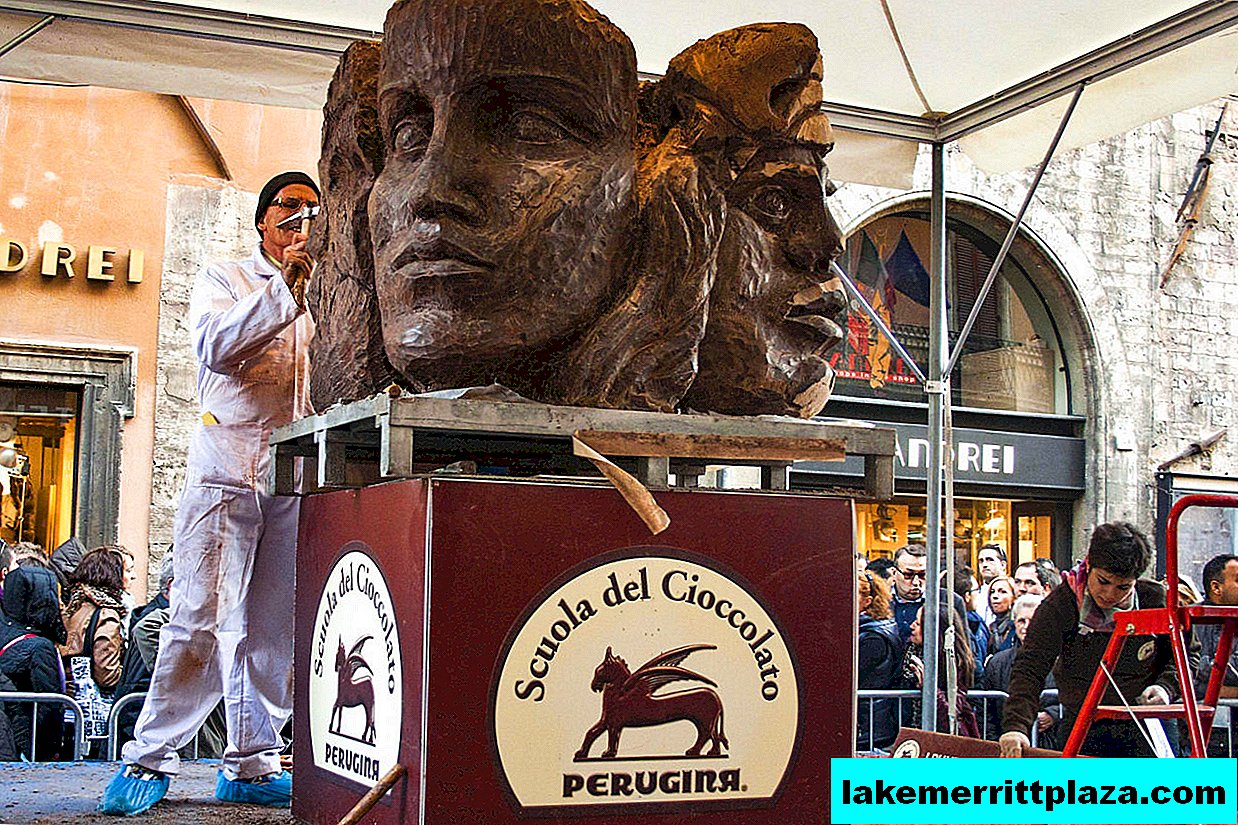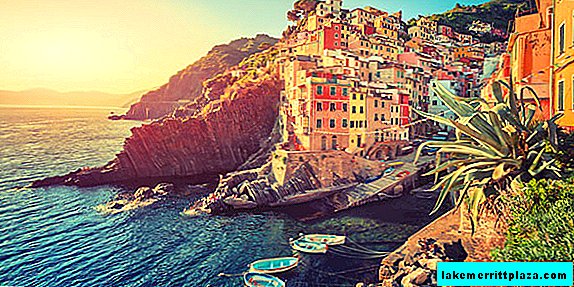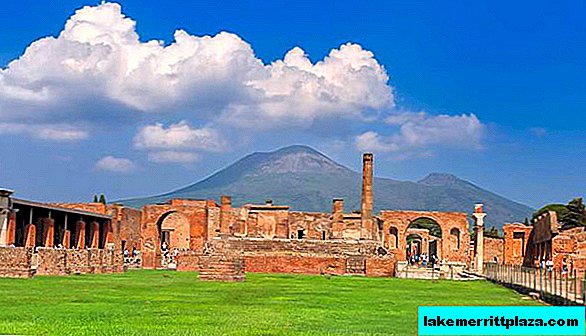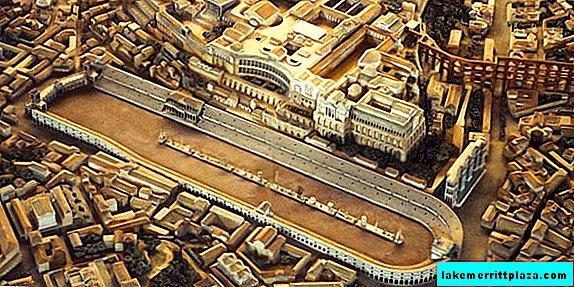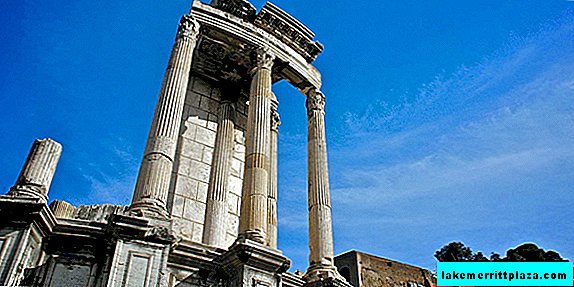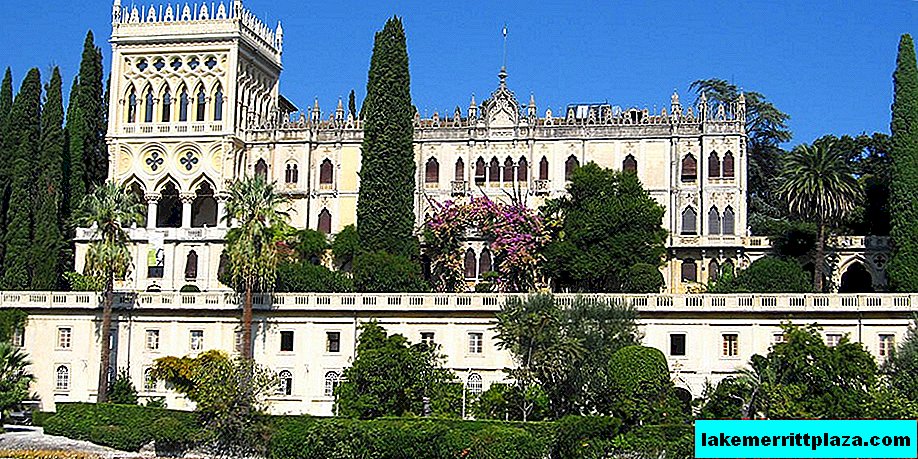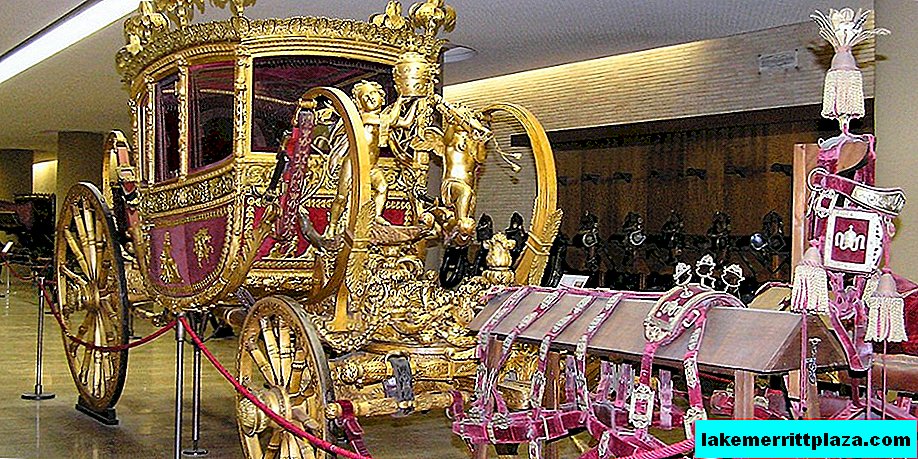Teramo is the capital of the province of the same name in the Abruzzo region. The population of the city is 55 thousand people, and it is located 200 km northeast of Rome. In the north and west, the province of Teramo borders on the Marche and Lazio regions. They are separated by the Monti della Laga mountain range (Monti della Laga), which belongs to the Abruzzo Apennines. The highest massif of this mountain system - Gran Sasso d'Italia (Gran Sasso d'Italia) - is adjacent to the south of the province. Its territory, descending from the snow-capped mountains, smoothly passes into the sunny coast of the Adriatic Sea.
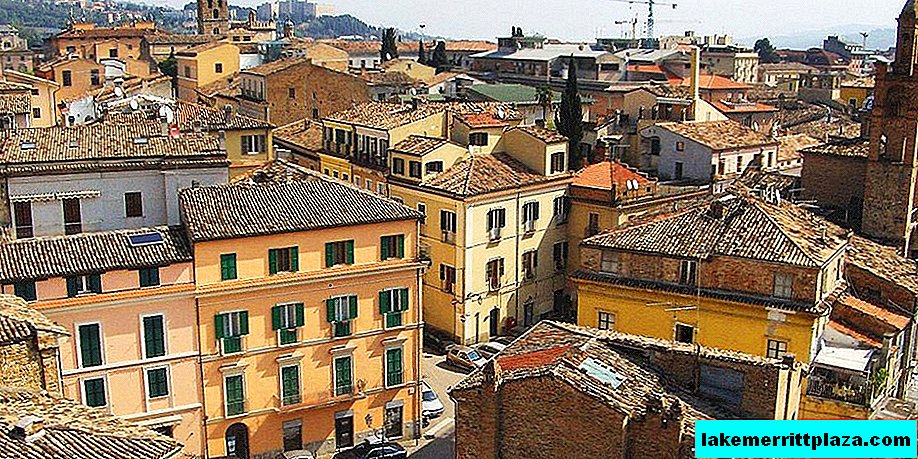
Teramo is:
- Ski resorts high in the Apennine mountains;
- Sunny beaches of the Adriatic;
- The historical center, where the ancient ruins organically fit into the urban landscape.
Teramo is also a city that gave its ancient name to the whole region.
Story
The very first name that came to us, the city received from the Phoenicians. Pioneer seafarers called the settlement of the ancient Italians Petrut “a high place and surrounded by waters.” Many rivers flow down from the peaks of the Apennines in this place: Tordino, Vezzola, Vomano, etc. When the Romans subjugated these lands (III century BC), they named them in the Latin manner: Ager Praetutianus, i.e. "the land of Petrut." In the Middle Ages, it began to sound like Aprutium (VI century), and then turned into Abruzzio (XII century) - the name of the whole region.
But the city itself was not left without a name. Interamnia Urbs - as the Romans called the settlement between the rivers Tordino (Tordino) and Vezzola (Vezzola), which means "city between the rivers." The city of Interns in the sources of the XII century was already called as Teramum (Teramum) and, finally, turned into Teramo.
During the period of the Roman Empire, the heyday of the city fell: theaters, thermae, pagan temples were built here. After the fall of Rome, the city suffered from military attacks, from civil strife and earthquakes. In 1806, the French authorities divided the region of Abruzzo into two provinces: L'Aquila and Teramo, since then the city has become a provincial center. Now under the administration of the municipality of Teramo there are 48 communes - cities and villages of the province.
Sights
Teramo is one of the few cities in Abruzzo where historical monuments are well preserved. They were not destroyed by earthquakes, quite frequent in these places, military operations spared.
Antique monuments
The ancient ruins are evidence of the busy life of the city during Roman times.
Necropolis di Ponte Messato

Necropoli di Ponte Messato is the main burial site of the ancient city of Teramo. Graves of the Iron Age and mausoleums of the beginning of the 1st century were discovered here. A.D .; they are located on both sides of the ancient stone-paved road Via Cecilia, which led to Rome. Inside the extensive tombs, square and round urns with ashes were found. This place can be found at: Strada Provinciale 50a.
Roman amphitheater

Roman Amphitheater in Teramo (Roman Amphitheater in Teramo) - refers to the 1st century A.D. The building was discovered under a pile of ruins in the 16th century: an elliptical arena, fragments of walls and gates, stands, fragments of statues. The legendary gladiatorial battles were once held here. Later they used the amphitheater as a fortress. The best overview of the building is possible on Via San Berardo in the historic city.
Roman theater

The ruins of the Roman Theater (Roman Theater of Teramo) are located next to the amphitheater and date back to the 2nd century AD. An auditorium with a diameter of 80 m could accommodate up to 3 thousand people. In the Middle Ages, the theater became a quarry for the extraction of building material. The stone buildings of the ancient ruins look very elegant, so the light shades of some varieties of modern brick are called teramo brick. Address: Via Paris Luigi.
Domus Leo

An expressive mosaic - the face of a lion fighting a snake - adorned the patrician's house in the 2nd century BC It was discovered recently and has become the main attraction of Teramo. A luxurious floral ornament and a play of chiaroscuro create a delightful pictorial effect. Outdoor decoration allowed to restore the layout of the ancient home, which was called Domus Leo (Domus e mosaico del Leone). The mosaic is located on corso Cerulli in the palace of Savini (Domus Savini o "del Leone").
Monuments of the Middle Ages
Cathedral

Duomo di Teramo - this is the name of the main cathedral of the city, consecrated in honor of the Virgin and St. Bernard is the patron saint of the city. It stands at the end of the main streets: corso De Michetti, San Giorgio, corso Cerulli. Built in the XII century, the temple still bears the features of the Romanesque style with Gothic elements: a rectangular building with thick smooth walls and columns of stone from ancient ruins. Carved and sculpted masterpieces of Italian masters are presented in the interior decoration. The bell tower next to the cathedral stores a siren that warned residents about the air raids of bombers during the war.
Church of st. Anna Pompetti

The uniqueness of the church of St. Anna Pompetti (Chiesa di Sant'Anna dei Pompetti) - in her antiquity. It was built in the VI century. on the ruins of a pagan temple, from that time there was a floor mosaic and 2 Corinthian columns. The Pompetti family restored this small church, preserving all the old features, decorated it with a sculpture of St. Anne and the Virgin, so the name of the church also contains this name. Address: Via Antica Cattedrale, 24.
House Melatino

House Melatino (Casa dei Melatino) is one of the few monuments of medieval secular architecture. Construction time - XIII century. A square three-story building with small windows scattered in a chaotic manner on a stone wall, well conveys the harsh spirit of the time. The windows themselves - bivalves, with twisted columns - are the only external decoration of the fortress house. Inside is a museum with a rich collection of ceramics and European porcelain. Address: Via Aurelio Saliceti, 25.
Bas-relief "Visionary"

The bas-relief “Malevolent” (Male lingue) is a stunning evidence of the medieval customs of the town, which has been tormented by internecine passions for decades. A 15th-century stone bas-relief depicts men with protruding tongues pierced by a pair of compasses. The scene is crowned with the inscription: "Follow the words." The history of the appearance of the bas-relief is described in historical chronicles. The feud between the families of Melatino and de Valle was tried to calm the lord of the city, for which he was offended by the head of the party Melatino. The lord executed the leaders of this house. And their rivals de Valle ordered this bas-relief for themselves and others for admonition. Now it is located in the building of the Teramo City Hall: Municipio di Teramo, Piazza Ercole Vincenzo Orsini 16.
Medieval village

The medieval village of Teramo (Castello Della Monica) arose at the beginning of the 20th century and bears the name of its creator - architect Della Monica. The complex of buildings in the Neo-Gothic style consists of a castle and the surrounding buildings located on a picturesque hill. Gothic decorations of the castle are successfully combined with the relief and terraced gardens, creating a unique landscape. Address: Viale Camillo Benso Cavou.
"Seven Sisters" - seven provincial beaches
The coast of the province of Teramo is one of the best places for a beach holiday in the Adriatic. Many resorts have a distinctive sign - the "Blue Flag" for the cleanliness and good equipment of the recreation area. The swimming season begins here in mid-June, but cool weather can be seen before the end of the month. The height of bathing is July-August: the air warms up to 35 °, water - up to 27 °. In September-October, the weather is cooler, but the sea is still warm: 23 ° -24 °; a little people, prices go down - the velvet season.
Martinsicuro

Martinsicuro - the northernmost of the Teramo resorts, has exceptionally clean beaches (with the national Blue Flag). A shallow flat bottom and low coastal make it attractive for families. In addition to a large public beach, the resort has hotel-owned, well-equipped beaches with water sports equipment rental.
Alba Adriatic
The beach of Alba Adriatica is called silver due to the characteristics of the sand. It is popular among vacationers, it is always crowded here. Palm and pine groves with a path for cycling stretch along a 3-km swimming zone. In the vicinity is the town of Tortoreto, which has a children's water park - Acquapark Onda Blu.
Julianova
Giulianova is an ancient settlement of Roman times. There are a lot of medieval monuments, a seaport, excellent beaches.
Rosetto degli Abruzzi

Roseto degli Abruzzi is the third largest city in the province, a leading resort in the region. The beauty of the area, the purity of the sea, historical monuments, and plus the annual Roseto Opera Prima Italian Film Festival.
Pineto and Sylvie
A feature of Pineto that attracts tourists here is a pine forest growing directly on the sand. It stretches for 2 km and gives the charm of a beach holiday. Silvi is the southernmost resort of the province, with its hills offering wonderful views of the sea, and in clear weather - to distant Yugoslavia.
Hotels
4 stars
Hotel sporting

The location of the Sporting Hotel gives you the opportunity not only to thoroughly get acquainted with the historic center of Teramo. In half an hour you can get from it to the beaches of the Adriatic, or during the same time you can be high in the mountains in the national parks of Monti Sibillini or Gran Sasso. The hotel has a fitness room, sauna, restaurant.
3 stars
Hotel abruzzi

The convenient location near the bus station and railway station, the availability of services for children (beds, menus, entertainment) attracts family travelers to the Abruzzi hotel. The rooms have spacious bathrooms, and the restaurant specializes in local delicacies.
B&B
Antica interamnia

The rooms of Antica Interamnia are decorated in the style of the 15th century, an Italian breakfast is served in the morning, and a standard service is provided in the rooms. There is a train station nearby, and the beach in Giulianovo is 25 km away.
How to get there
From rome
From Rome to Teramo by bus FlixBus.ru you can get there in just 2 hours, the ticket price is from 5 to 8 euros.

A direct high-speed train from Rome to Teramo, and traveling with regional trains with a change in Pescara will take you about 5 hours, a ticket costs 16.90 euros.

- We recommend reading: Italy trains
From Pescara
From Pescara to Teramo there are buses and trains. The cost of a ticket for a regional train is 5.8 euros, travel time is 1 hour 12 minutes.

- For independent travel to Teramo, we recommend that you rent a car at auto.italy4.me.
If you want to combine the romance of mountain travel with beach vacations and educational tourism in one trip around Abruzzo, then Teramo will fit perfectly into your plans.


